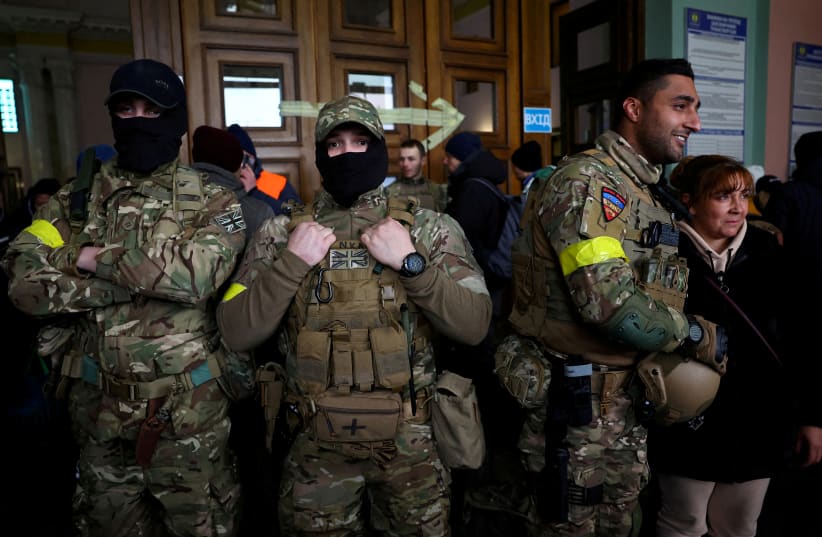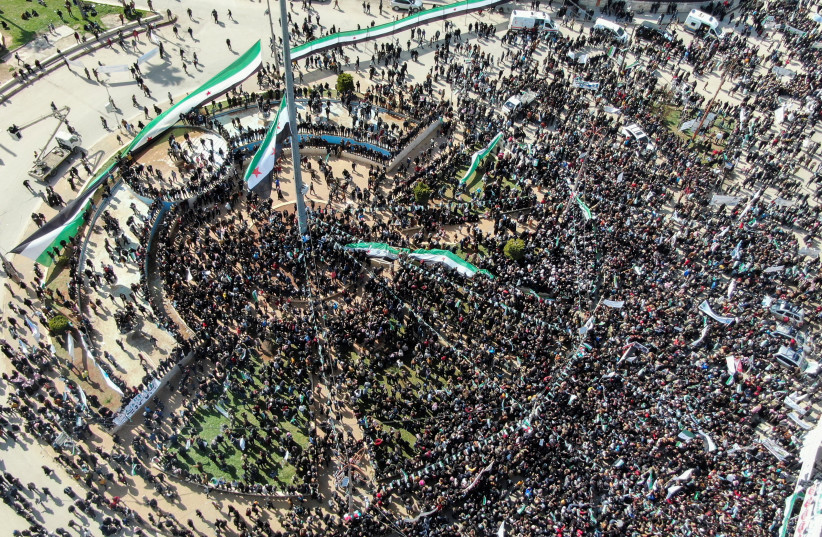Veterans of the Syrian conflict who backed the Syrian rebels against the Assad regime, as well as people who went to Iraq and Syria to cover the war against ISIS or actively support victims of ISIS, have tended to unite again in backing Ukraine against Russia’s invasion.
This diverse group of people has tended to travel to Ukraine in the wake of the invasion or are trying to find ways to help Ukrainians. Their reasons for this are myriad. Some just want to help the vulnerable, while others see the Russian targeting of hospitals and bombing of the civilians in Ukraine as yet another chapter in Russia’s bombing of Syrian civilians.
Some of those who have gone to Ukraine are also volunteering to help fight against the invasion. These are men with military experience, some of whom also volunteered to help fight ISIS in Iraq or Syria or for other causes there. It is well known that hundreds of people from Europe went to help the Syrian Democratic Forces, a group that grew out of the Kurdish YPG, to fight ISIS in Syria. Others went to the autonomous Kurdistan region of Iraq to help oppose the global jihadist organization.
What is it that unites this unique group of people?
Many of them saw as a defining moment what happened in Syria, where the Assad regime brutally crushed a rebellion and then fought a 10-year civil war. They saw how Russia intervened in Syria in 2015 and helped reverse the Assad regime’s losses.
But that came at a terrible price. Aleppo fell to the regime in 2016 and soon most of Syria’s major cities were back in regime control. Russia used warplanes to strike at civilians and break the morale of the Syrian rebels. No target was off-limits and there was impunity for Russia. Moscow believes it has the same impunity in Ukraine. No one will remove it from the UN Security Council so it can basically veto any action.
The disaster unfolding in Ukraine, therefore, is another chapter in the Syrian war. In fact, Russia’s intervention in Syria was book-ended by Ukraine. Moscow first invaded Crimea and backed separatists in eastern Ukraine in 2014. Then it went into Syria. When the Syrian war was largely settled, it turned its focus back to destroying its besieged southwestern neighbor.
Another group of people who care deeply about Ukraine is made up of military volunteers who opposed ISIS, which was able to grow in Syria and Iraq in 2014 as the Syrian war spiraled into chaos.
The global terrorist group invaded Iraqi cities in 2014 and carried out a brutal genocide against the minority Yazidi community. Unspeakable crimes against humanity were perpetrated by ISIS, including selling women and children into slavery and mass rape. The group killed so many Shi’ites at Camp Speicher that the river nearby ran with blood. The Nazi-like crimes inspired volunteers to come to help put ISIS down. Some of those volunteers are now seeking to go to Ukraine.
Most of those who have served in the wars against ISIS in Iraq and Syria and have now gone to Ukraine keep their profiles private, knowing that they can be targeted by Russia, or even picked up when they return home for serving in a foreign war. Yet data on who these fighters are tends to show a similar profile to those who served with the YPG or other units in Syria or went to Iraq to help. They include Americans, British, Germans, Canadians and Dutch.
In short, the English-speaking world is over-represented by people going to volunteer for the front lines.
This brings up memories of those who gave their lives in the fight against ISIS as volunteers, such as Jac Holmes, John Gallagher, Keith Broomfield, Reece Harding, Konstandinos Erik Scurfield and many others. Some of their comrades have now gone to Ukraine to stand against the Russian invasion, driven on by the same sense of right and wrong that led them to Syria. The war in Ukraine has also united the same humanitarian volunteers and writers who went to the battlefields of Syria and Iraq.

